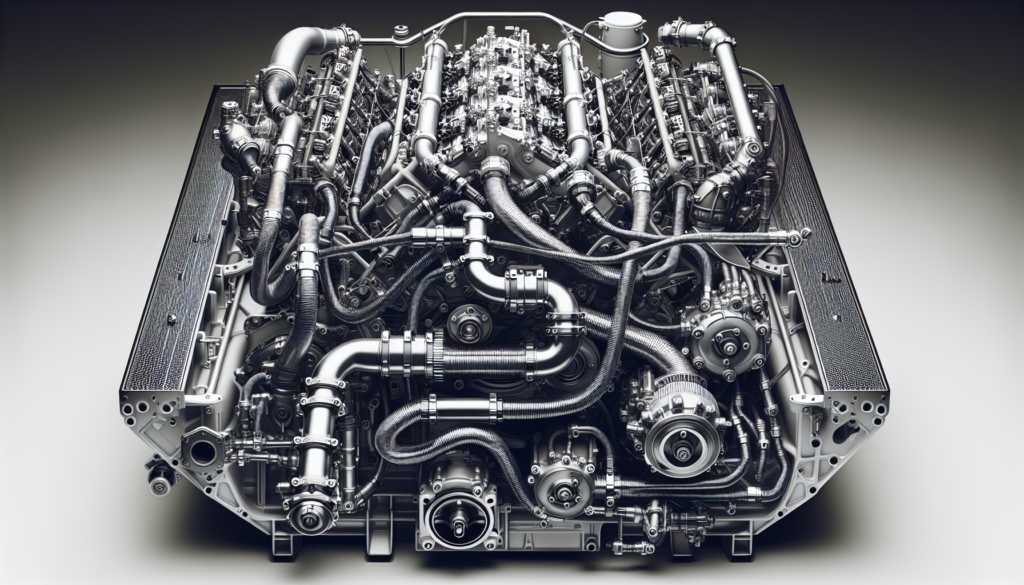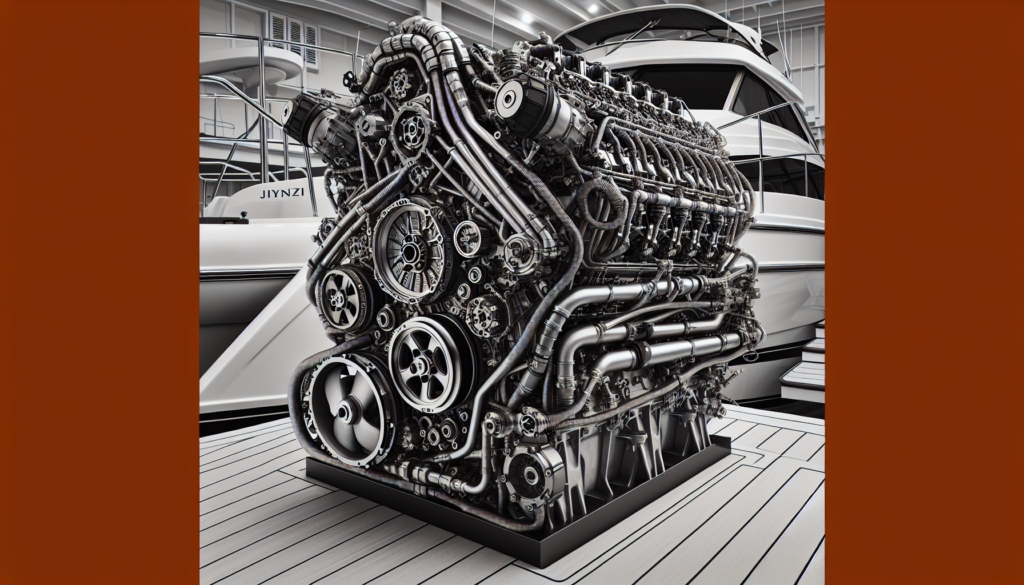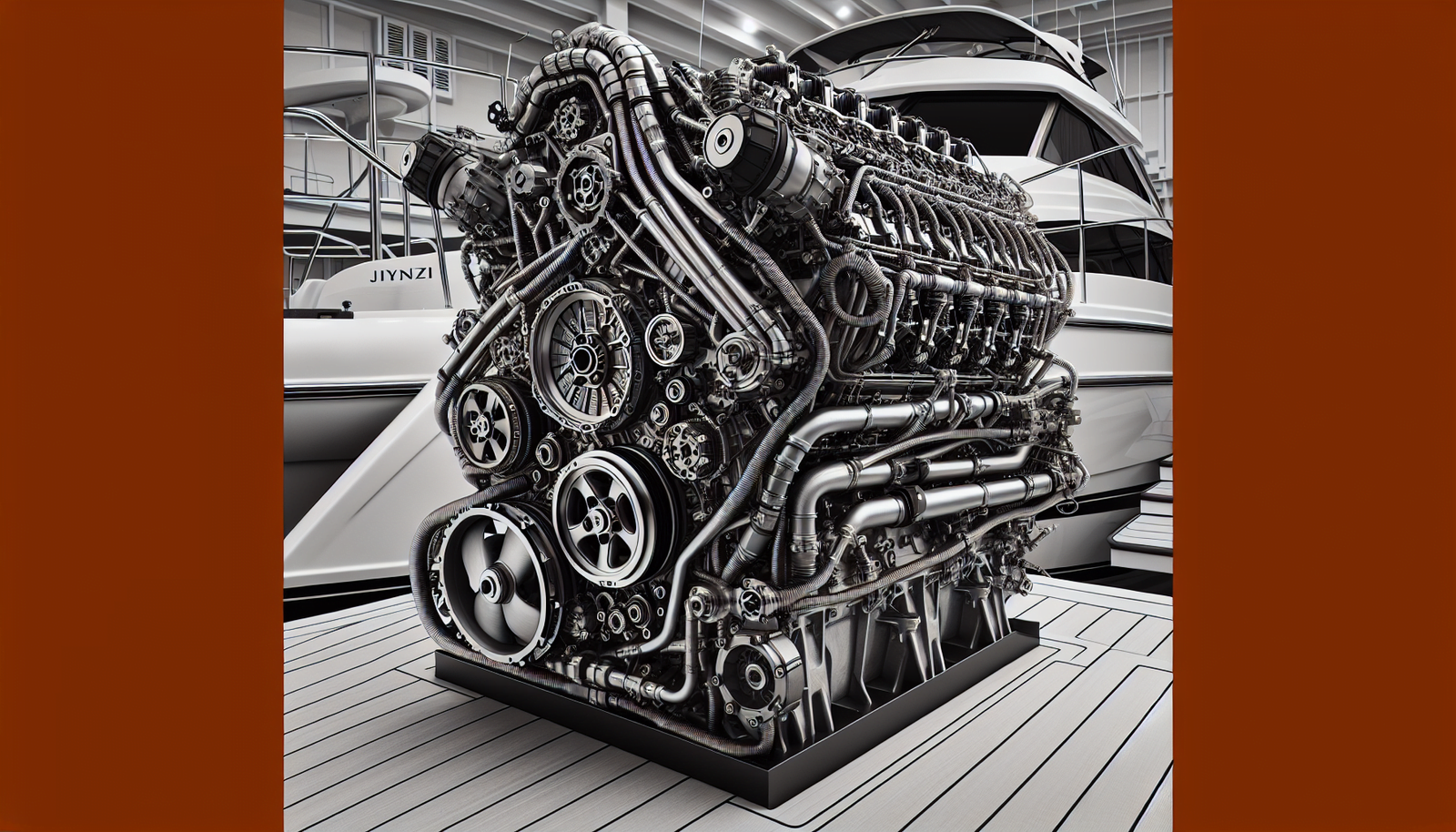Navigating through the world of boat engine cooling systems can seem like a daunting task. You want the best for your aquatic adventure companion, yearning for a cooling system that ensures your engine’s endurance and stability. This comprehensive guide, aptly named “What You Need to Know About Choosing the Right Cooling System for Your Boat Engine” will help you understand what’s at stake in making your choice, factors to consider, and the pros and cons of the various systems available. Your boat’s engine is its heart; its protection, your responsibility. Here’s where you can arm yourself with the knowledge to make an informed decision, potentially saving yourself from future technical headaches and unexpected expenses.

Understanding the Importance of Boat Engine Cooling Systems
Like with any engine, be it for a car, a boat, even an airplane, the cooling system plays a pivotal role in efficient operation. Without it, engines would overheat and fail, leaving you stranded or worse, dealing with a fire onboard. For such reasons, understanding the importance of boat engine cooling systems is vital for any boat owner.
How Cooling Systems Work
Cooling systems work on relatively simple concepts. At its core, an effective cooling system redirects heat away from the engine with the aid of a coolant or water. When the engine runs, it burns fuel, producing heat. If the heat isn’t redirected or cooled, the engine can overheat, resulting in severe damage. Depending on the type of cooling system in place, the heat transfer mechanism may differ, but more or less, they all share this fundamental process.
The Role of Cooling Systems in Engine Maintenance
In the grand scheme of engine maintenance, cooling systems act as preventive control measures to avoid engine overheating. By keeping engine temperatures in check, these systems prevent premature wear and tear, enhance performance, and extend the lifespan of your boat engine. Failure to regularly monitor and maintain your cooling system could increase your engine’s vulnerability to damage.
Common Problems with Insufficient Boat Engine Cooling
Insufficient or ineffective boat engine cooling could usher in an array of issues. Common problems range from minor issues such as loss in engine power and poor fuel efficiency to more alarming issues such as engine seizing, cracks in the engine block, or even engine fires. Apart from these, uneven cooling could also lead to warped metal components, another hefty issue to address.
Types of Boat Engine Cooling Systems
There are several types of boat engine cooling systems available – raw water cooling systems, fresh water cooling systems, and hybrid cooling systems. Each system comes with its own sets of advantages, disadvantages, and ideal use cases. The critical part is choosing the right cooling system based on your specific boating needs.
Raw Water Cooling Systems
Raw water cooling systems, as the name suggests, use the water that the boat is currently in to cool the engine. This system takes in water from the body of water you’re boating in, passes it through the engine to absorb the excess heat, and then discharges it back out.
Fresh Water Cooling Systems
In contrast, fresh water cooling systems, also known as closed cooling systems, use a coolant or antifreeze instead of raw water to cool the engine. The coolant absorbs heat from the engine and then passes through a heat exchanger where raw water cools the heated coolant.
Hybrid Cooling Systems
Hybrid cooling systems, on the other hand, are a combination of both raw water and fresh water cooling system. Large parts of the engine use the fresh water system, and smaller parts utilize the raw water system. The benefits of using a hybrid system can range from cost to efficiency, depending on your boating use.
Raw Water Cooling Systems
Raw water cooling systems are the simplest and most common type of cooling system in small boats. They are easy to install, use, and maintain.
Advantages of Raw Water Cooling Systems
Raw water cooling systems are often budget-friendly, being inexpensive to install and maintain. They are also less complicated and require less space than other types of cooling systems. Since they are simple in design, they are less likely to have problems associated with more complex mechanisms.
Disadvantages of Raw Water Cooling Systems
However, raw water cooling systems come with their share of cons. The most notable is that it exposes the engine to the potentially damaging effects of salt, debris, and other contaminants if you’re boating in salt water or unclean waters. This not only could cause blockages in the cooling routes but could also lead to corrosion over time.
Ideal Use Case for Raw Water Cooling Systems
Generally, raw water cooling systems are ideal for smaller boats that are used infrequently and in cooler, fresh water bodies. They might not be the best fit for boats frequently used in salt water or heated regions.

Fresh Water Cooling Systems
Fresh water cooling systems are a level up from raw water systems. These systems offer broader benefits and protection for your boat engine.
Benefits of Fresh Water Cooling Systems
Major advantages include better internal engine protection because it uses antifreeze as a coolant, which doesn’t encourage rust or corrosion. This system also allows the engine to maintain a consistent, controlled temperature, increasing overall performance and lifespan.
Drawbacks of Fresh Water Cooling Systems
On the downside, fresh water cooling systems are more complex and take more to install and maintain. They are also more expensive than raw water cooling systems.
Optimal Uses for Fresh Water Cooling Systems
With their durability and efficiency, fresh water cooling systems are typically the go-to choice for larger boats and vessels that are often used in saltwater or heated environments. Plus, if you plan on keeping your boat for many years, investing in this system would be cost-efficient in the long run.
Hybrid Cooling Systems
Besides the two main types, there are also hybrid cooling systems that combine components of raw water and fresh water systems.
Key Features of Hybrid Cooling Systems
Hybrid cooling systems utilize both coolants and raw water for cooling different parts of the engine. The most significant parts of the engine use the fresh water system, and the minor, less critical parts take on the raw water system.
When Hybrid Cooling Systems are the Best Choice
Choosing a hybrid system can be the best of both worlds, combining the simplicity and affordability of raw water systems with the more efficient, effective cooling provided by fresh water systems.
Potential Challenges with Hybrid Cooling Systems
The challenge with hybrid systems is managing and maintaining their dual functionality. Keeping track of the two subsystems may be a bit of a task, but it can offer significant benefits if efficiently handled.
Considerations in Choosing the Right Cooling System
Choosing the right cooling system depends largely on the size of your boat and its engine type, the boating environment and conditions, and your willingness to handle the maintenance requirements and costs of the system.
Boat Size and Engine Type
The size of your boat and the type of engine play a significant role in the type of cooling system you need.
How Size Impacts Cooling Needs
Larger boats with larger engines produce more heat and thus will require a more robust cooling system, such as a fresh water or hybrid system. On the other hand, smaller boats with smaller engines can often get by with a raw water cooling system.
Matching Engine Type to Cooling System
Similarly, the engine type should match the cooling system. For example, if you’ve got a high-performance engine that runs at high temperatures, a fresh water or hybrid cooling system may be advisable. A smaller, less powerful engine may only need the basic raw water system.
Boating Environment and Conditions
The type of water and conditions you’re boating in also influence your choice of cooling system.
Accounting for Water Temperature
The water temperature is a primary consideration. If you’re frequently boating in warm or tropical waters, a fresh water or hybrid system might be a better choice to cope with the heat effectively. Cooler waters might be better suited to raw water cooling systems.
Dealing with Salt Water versus Fresh Water
Saltwater can be corrosive and damaging to a boat’s engine, so if you’re going to be primarily boating in the ocean or seas, you may want to consider a fresh water or hybrid cooling system to fully protect your engine.
Factors like UV Exposure and Climate
Other factors like UV exposure, the climate of your boating region, and even the quality of the water could have potential impacts on how effective your cooling system will be. It’s important to consider these aspects and choose a cooling system that will hold up best in these conditions.
Maintenance Requirements and Costs
Choosing a cooling system is also about striking a balance between effectiveness and maintenance requirements and costs.
Evaluating the Costs of Cooling System Maintenance
The costs of maintaining a cooling system could add up quickly if you don’t bear considerations in mind. Freshwater and hybrid cooling systems are generally more expensive to maintain than raw water systems. However, they also offer better engine protection, which might save you from hefty engine repairs in the long run.
Maintenance Needs for Different Cooling Systems
Each type of cooling system needs specific maintenance, mainly regular cleaning and check-ups for any leaks or blockages. This could involve flushing your system periodically or changing filters regularly.
Considering the Impact of Maintenance on Boat Operation
Maintenance can’t be put off without risking significant engine damage. Ignoring maintenance can therefore also impact boat operation. It’s crucial to choose a system whose maintenance you’re ready to undertake.
Installation and Upgrade Considerations
After you’ve contemplated all these variables, the next step is installing your cooling system or upgrading your existing one.
Process of Installing a New Cooling System
Installing a new cooling system isn’t a task you should take on unless you’re handy and knowledgeable about boat engines. It’s a complex process that should generally be left to professionals.
Evaluating the Need for Cooling System Upgrades
If your boat already has a cooling system, but you think it needs an upgrade, perform an honest assessment of its performance and condition. Has it been failing to effectively cool your engine? Or, has the engine started developing issues despite regular maintenance? If the answer is yes, it might be time for an upgrade.
Factors to Consider During Installation or Upgrade
Installation or upgrade could mean downtime for your boat. You’ll have to decide if it’s something you can manage. Also, you’ll have to think about the cost and the time it would take to get the job done.
In conclusion, the cooling system is an essential part of your boat that you should not overlook. Considering the size of your boat, the type of engine, your boating environment and conditions, and your maintenance capabilities is a critical step in choosing the right cooling system. And don’t forget about the installation process. It will take time and potentially some downtime for your boat, but in the end, it’s all worth it to keep your engine running in top condition, ensuring many fun-filled days on the water.


